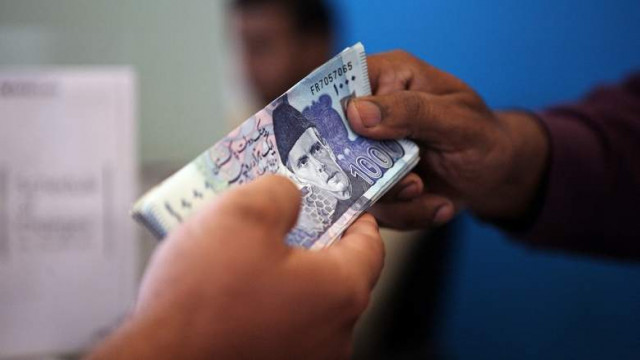Lobbyists in overdrive for Benami assets
Elites pressurising govt to allow whitening of Benami properties after paying negligible taxes

PHOTO: REUTERS
The Adviser to Prime Minister on Finance Dr Abdul Hafeez Shaikh, who is also the de facto finance minister, chaired on Tuesday the second meeting on formulation of new tax amnesty scheme, which was also attended by some elite and their lobbyists.
It was decided that the Federal Board of Revenue (FBR) would prepare a draft of the tax amnesty after incorporating suggestions given by the private sector participants.
During the meeting, the participants from the private sector pushed the tax authorities hard to set extremely low tax rates for declaring the hidden and ill-gotten assets, said sources in Finance Ministry.
They urged the government to set extremely low but fixed tax rates, even if a property is located at a posh area, and charge only 1% rate on hidden Benami properties. Under the law, Benami properties are liable to confiscation and owners of such properties can be sentenced to up to 7-year- imprisonment.
Contrary to Prime Minister Imran Khan’s stance, there is also a proposal to allow declaring offshore immovable assets. Earlier, there was a proposal only to allow those offshore assets that can be repatriated to Pakistan.
This was for the first time that these lobbyists and the elites were allowed to attend the meeting, called to design the tax amnesty scheme. During the time of former finance minister Asad Umar, these lobbyists had not been allowed to attend official meetings, although some of them were present at Bani Gala meetings.
Former finance minister Shaukat Tareen joined the meeting through video link from Karachi.
The sources said the private sector participants also pushed the government to allow whitening the cash in bank accounts at their closing balances. If the government accepts this proposal, it will be like ridiculing those who have been paying their taxes.
Most of the businessmen and industrialists, who want to remain outside the tax net, frequently open new bank accounts and channel their cash to avoid being detected by the authorities.
For instance, there are accounts where the cash at point peaks to hundreds of millions of rupees but the closing balance remains only Rs2,000. For credit entries in own bank accounts, the FBR had proposed 1% of the total credit entries from July 2013 till June 2018 or 10% of the peak credit entries during the period, whichever is higher. The elites and lobbyists opposed this rate.
For credit entries in Benami accounts, the FBR’s proposal was 2% of the total credit entries from January 2017 till the launching date of the amnesty scheme, or 10% of the peak credit entries during this period, whichever is higher.
For Benami assets and all types of other assets, the proposed rate was in double digits and these lobbyists want that real estate properties should e allowed to declare at 1%.
Last month, the World Bank report identified four influential groups – the civil servants, landowners, industrialists and security services – that had captured Pakistan’s economy. These groups have been exploiting the system.
According to a book written by Dr Hafiz Pasha, there are at least seven categories of elites in Pakistan who have captured the economy. According to him, these elites are availing over Rs850 billion annual tax benefits. These include large landowners, defence establishment, multinational companies, commercial banks, urban real estate developers and parliamentarians.
So far, the federal cabinet has also twice discussed the tax amnesty scheme but deferred its approval due to differences of opinion on tax rates, its scope and the moral authority of the government to allow people whiten their ill-gotten money.
The Pakistan Tehreek-e-Insaf (PTI) government believes that people should be given one ‘last chance’ to legalise their hidden assets, before the government launches crackdown against them.
An official handout of the Finance Ministry stated that the meeting deliberated upon various aspects of the scheme and emphasised the need to make it more simple and implementable.
The participants gave their inputs and suggested that since the focus of proposed scheme is on documentation of economy, it should be designed to clearly reflect that objective.
The finance adviser directed the FBR to modify and refine the scheme by making it more attractive and persuasive so that maximum people, who are currently outside the formal economy, are able to become a part of it.
Hafeez Shaikh gave directions to the FBR to devise a successful communication strategy enabling the people to easily comprehend the contours of the scheme. The FBR had proposed an income-based tax amnesty model that the finance adviser did not approve.
The lobbyists also urged the government to exclude brothers and sisters from the definition of the Politically Exposed Persons (PEPs). The PEPs will not be allowed to avail the scheme.
There was also a proposal to exclude the definition of the ineligible and eligible persons from the main text and make it part of the schedule of the Amnesty Ordinance.



















COMMENTS
Comments are moderated and generally will be posted if they are on-topic and not abusive.
For more information, please see our Comments FAQ